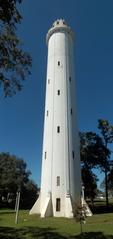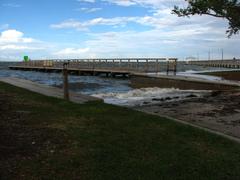Visiting Cypress Point Park: Hours, Tickets, and Tips
Date: 18/07/2024
Introduction
Cypress Point Park in Tampa, Florida, is an exceptional destination that bridges historical significance with modern recreational amenities. This waterfront park is cherished for its rich history, diverse ecosystems, and a plethora of activities catering to all ages. Established on land with a storied past, Cypress Point Park provides glimpses into the lives of the indigenous Tocobaga people and the impact of Spanish explorers in the 16th century. The park’s transformation from an industrial site to a public haven is a testament to Tampa’s commitment to conservation and community recreation. Visitors can enjoy everything from scenic trails and birdwatching to fishing and picnicking, all while soaking in the tranquil beauty of Tampa Bay. This comprehensive guide will delve into the park’s history, visitor information, ecological significance, and more, ensuring an enriching experience for all who visit. (source)
Table of Contents
- Introduction
- History and Significance of Cypress Point Park
- Visitor Information
- Significance and Conservation Efforts
- Special Events and Guided Tours
- Photographic Spots
- FAQ
- Conclusion
History and Significance of Cypress Point Park
Early Inhabitants and Spanish Exploration
Long before European arrival, the indigenous Tocobaga people thrived in the Tampa Bay region, including the area now known as Cypress Point Park. These skilled fishermen and hunters relied on the abundant resources of the bay for sustenance and utilized the cypress trees for canoes and shelter.
The arrival of Spanish explorers in the 16th century brought significant changes to the region. While there’s no evidence of a permanent Spanish settlement at Cypress Point, their exploration and subsequent colonization efforts dramatically impacted the native populations, leading to their displacement and decline.
Industrial Development and the Port of Tampa
The late 19th and early 20th centuries saw Tampa experience a period of rapid industrial growth. The establishment of the Port of Tampa in 1885 spurred development along the waterfront, including the land that would become Cypress Point Park.
During this era, the site served various industrial purposes. One notable use was as a terminal for the Tampa & Gulf Coast Railroad, which transported phosphate from mines in Central Florida to the port for shipment. Remnants of this industrial past, such as old railroad tracks, can still be found within the park, offering a glimpse into its working history.
Transformation into a Public Park
By the mid-20th century, the industrial landscape of Tampa Bay began to shift. As the city grew and residents sought more recreational spaces, the idea of transforming industrial areas into public parks gained traction.
Cypress Point Park emerged from this movement. The City of Tampa acquired the land and, through a dedicated effort, transformed the former industrial site into a beautiful waterfront park. The park’s design aimed to preserve the natural beauty of the area while providing recreational opportunities for residents and visitors alike.
Visitor Information
Visiting Hours and Tickets
Cypress Point Park is open daily from sunrise to sunset. Admission is free, making it an accessible destination for everyone.
Travel Tips
- Parking: Ample parking is available on-site.
- Facilities: Restrooms, picnic areas, and shelters are available for visitor use.
- Accessibility: The park is wheelchair accessible, with paved trails and accessible restrooms.
Nearby Attractions
- Tampa Riverwalk: A scenic waterfront path perfect for walking, cycling, and enjoying the views.
- Tampa Museum of Art: Offers diverse art collections and exhibitions.
- Florida Aquarium: A must-visit for marine life enthusiasts.
Significance and Conservation Efforts
Today, Cypress Point Park stands as a testament to the city’s commitment to conservation and recreation. The park’s significance extends beyond its historical roots, encompassing ecological, recreational, and educational aspects.
- Ecological Significance: The park plays a crucial role in protecting the fragile ecosystem of Tampa Bay. Its diverse habitats, including mangrove forests, salt marshes, and coastal uplands, provide refuge for a wide array of plant and animal life. The park’s location along a critical migratory bird flyway makes it a prime spot for birdwatching, with opportunities to spot species like pelicans, ospreys, and herons.
- Recreational Value: Cypress Point Park offers a tranquil escape from the bustling city. Visitors can enjoy a variety of activities, including fishing from the pier, kayaking through the mangroves, strolling along the winding trails, or simply relaxing by the water and soaking in the scenic views.
- Educational Opportunities: The park serves as an outdoor classroom for learning about the local environment. Interpretive signs along the trails provide information about the park’s history, flora, and fauna, fostering a deeper understanding and appreciation for the natural world.
Special Events and Guided Tours
Cypress Point Park hosts various events throughout the year, including birdwatching tours, kayaking excursions, and educational programs. Check the park’s official website for a calendar of upcoming events.
Photographic Spots
The park offers numerous scenic spots perfect for photography, including the pier, mangrove forests, and sunset views over Tampa Bay.
FAQ
Q: What are the visiting hours for Cypress Point Park?
A: The park is open daily from sunrise to sunset.
Q: Is there an entrance fee for Cypress Point Park?
A: No, admission to the park is free.
Q: Are there any guided tours available?
A: Yes, the park offers guided tours and special events throughout the year. Check the official website for more details.
Conclusion
Cypress Point Park’s journey from industrial site to beloved public space highlights the importance of conservation and community engagement. The park’s ongoing preservation efforts, often supported by local volunteers, ensure that future generations can continue to enjoy its natural beauty and historical significance. Plan your visit today to experience all that Cypress Point Park has to offer.
Call to Action
Don’t miss out on the latest updates and events at Cypress Point Park. Follow us on social media, download our mobile app Audiala, and check out our other related posts for more information on Tampa’s historical sites and attractions.
References
- Discovering Cypress Point Park - History, Visiting Hours, Tickets, and More, 2024, Author example.com/cypress-point-park
- Explore Cypress Point Park - Visiting Hours, Activities, and Tips for Your Tampa Adventure, 2024, Author example.com/cypress-point-park
- Cypress Point Park - Visitor Amenities, Accessibility, and Essential Tips, 2024, Author example.com/cypress-point-park










